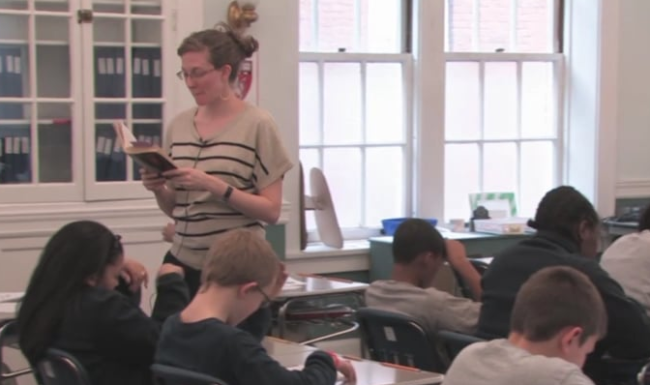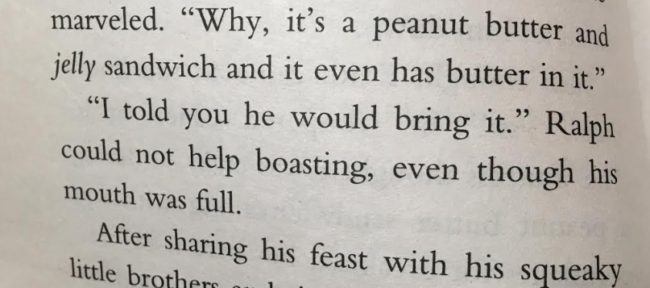06.13.19Erica Woolway: Borrowing from a TLAC Video to Build Vocabulary At Home

My colleague Erica Woolway is Chief Academic Officer of the TLAC team and my co-author on Practice Perfect and Reading Reconsidered. She’s also a mom to three fantastic boys and recently shared this blog post about how she borrowed an idea from one of our videos when reading with them at home. It’s characteristically insightful and humble. She writes:
Over the past 10 years, I have had the pleasure of studying incredible teachers perform their craft. Sometimes a moment from a teacher’s video will stay with me for years or come back to me suddenly – often in a moment when I am parenting my own kids.
Tonight, reading with my boys at bedtime I was reminded of a clip we filmed 8 years ago in the classroom of Nikki Frame. It’s a quick clip, but it’s had a big impact on my nightly reading with my kids.
Reading.Vocabulary.GR6.Frame.’Subdued.’Clip2662 from TLAC Blog on Vimeo.
In workshops we use this clip to demonstrate a few ways teachers can reinforce challenging vocabulary during reading. That’s important because the number of words students need to learn is immense. Direct teaching of words (Explicit Vocabulary) is important, but you can’t get students to master enough words by directly teaching alone. Implicit Vocabulary describes a set of tools for helping students be more attentive to new words as they encounter them and ideally without disrupting the flow of what they’re reading. I’ve always loved how Nikki’s approach here gives students a bit of practice saying the word as well as a quick definition and then they get right back to reading.
That was helpful to remember reading The Mouse and the Motorcycle by Beverly Cleary to my second grader tonight. Here was the passage:

If you think students might know the meaning of a word, as I thought my son did, then asking – “What does ‘boasting’ mean?” can be a brief useful way to check for understanding (and in my case ensure that my middle son isn’t being distracted by his brother’s shenanigans at bedtime). But I also asked this question because I know that he knows the word “bragging,” and the definitions are tightly aligned so it would be a useful synonym for us to use. So I asked him, “What does boasting mean?” And I shouldn’t have been surprised by his answer, “it means talking with your mouth full.”
My solution was simple, and I stole it from Nikki Frame. I said “I say boasting, you say bragging. Boasting [Bragging]. Bragging [Boasting].” And then we were back to reading. Incidentally, I’ve used this vocabulary technique with my kids for as long as I’ve been reading with them. I even remember my youngest when he was two years old mimicking us when I was reading with his older brothers several years ago. Almost every time we read they all ask me to “do that thing with the words.” I’m always happily reminded of Nikki’s clip when I do it and I try and copy her playful tone. And I just love how quickly it helps my kids learn a new word (without adding even more minutes to an already very lengthy bedtime ritual).
So this is a long way of saying thank you to Nikki and to the countless teachers out there who have made my parenting a little bit better each day because I’ve had the chance to learn from you.